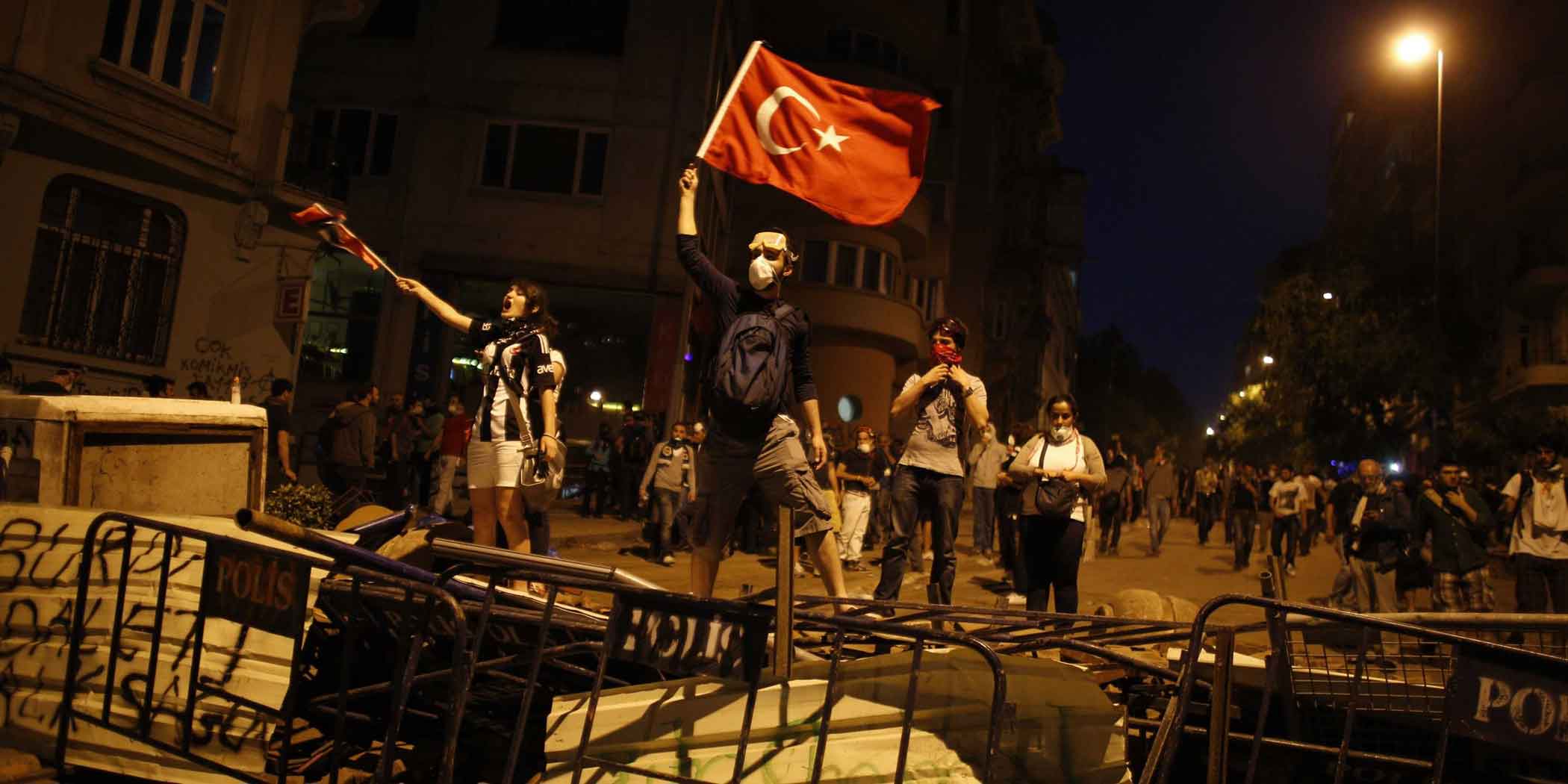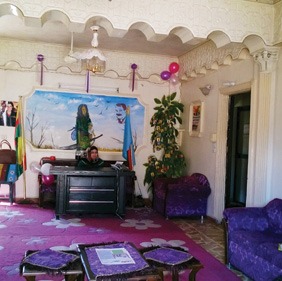
Prime Minister Recep Tayyip Erdogan, in office for a decade, faces unprecedented defiance to his authority. At least three are dead, and almost five thousand injured, in unrest throughout Turkey. It began with an attempt to disperse peaceful protests against plans to redevelop Gezi Park, a small green space adjacent to Taksim Square, Istanbul’s hub for shopping and nightlife. This triggered an explosion of anger that has been mounting for years against Erdogan and his Justice and Development party (AKP).
Outraged crowds gathered to support the protests and soon as many as ten thousand people were facing down riot police wielding batons, plastic bullets and tear gas.
Protesters marched across the Bosphorus bridge, blocking traffic on one of Istanbul’s most important arteries, chanting, “Everywhere is Taksim, everywhere is resistance!” In neighbourhoods throughout Turkey, the din of clanging pots and pans made sleep impossible. In Taksim itself, charred graffiti-covered shells of city buses and overturned police cars now lie amidst barricades of ripped-up stone and metal.
Thousands are camped in Gezi Park, where the euphoria and communal atmosphere of a festival prevail. The protesters have organised cleaning crews and set up a library. Everywhere are festooned massive flags and banners: “Tayyip resign”; “The Students Have Risen Up”; “Revolution is the Only Way”; “Socialism or Death”; “Tayyip Shut Up”. “He’s worse than Qaddafi,” says a middle-aged business owner. “But the best thing he ever did was to bring us together.”
Radical youth, fed-up middle classes and Kurdish activists are here, united against a prime minister they call a dictator and a fascist. Some criticism veers into the delusional: in May two car bombs killed 51 people in Reyhanli, a Turkish town near the Syrian border; and one sign in Gezi Park accuses the AKP itself of carrying out these attacks on orders from the Obama administration. More reasonably, many accuse Erdogan of undermining the secular principles upon which the Turkish Republic was founded. Women can now wear headscarves in public universities, and restrictions on alcohol have been imposed. Yet however much the urban educated middle and upper classes despise Erdogan, he still commands solid support in much of Anatolia, giving democracy in Turkey an extremely socially conservative hue.
Turkey is evolving a new balance, with unpredictable consequences. From the end of one-party rule in 1946, the military had been the check upon fledgling multi-party democracy, intervening several times in the name of stability. Five years ago the military again tried, through a pliant judiciary, to close the AKP on charges of undermining secularism, and in response Erdogan imprisoned hundreds of officers. Veteran Turkish human rights campaigners say that there was indeed enough proof of coup-plotting to send scores of generals to prison, yet these campaigners also accuse the government of tampering with evidence and initiating a witch hunt. More journalists are imprisoned in Turkey than in any other country, and thousands are in prison on flimsy terror charges.
Erdogan deserves credit for reforms asserting civilian control over the military, for presiding over the economic boom of the past decade, and for work towards a political settlement with the Kurdistan Workers’ Party (PKK), which has fought the government for decades in a war that has killed over forty thousand people. Yet Erdogan’s very success poses a danger for Turkey. The AKP has governed without coalition for a decade, and comparing Erdogan to the old generals of one-party rule – with its neutered press and subservient judiciary – looks increasingly apt.
Yet a divided and sclerotic opposition must share responsibility for this. The head of the Nationalist party has suggested that Kurdish terrorists lurk behind the Taksim protests, the Republican leader has called on the protesters to go home and the Kurdish leadership is staying away for the sake of the peace talks between the PKK and the government. Protesters and police continue to battle in Istanbul and throughout Turkey. Erdogan’s course is clear: shore up his base and accuse foreign agents of instigating the unrest. It is for his opponents in parliament and on the street to coalesce into a coherent democratic alternative.

